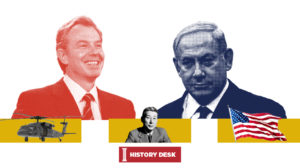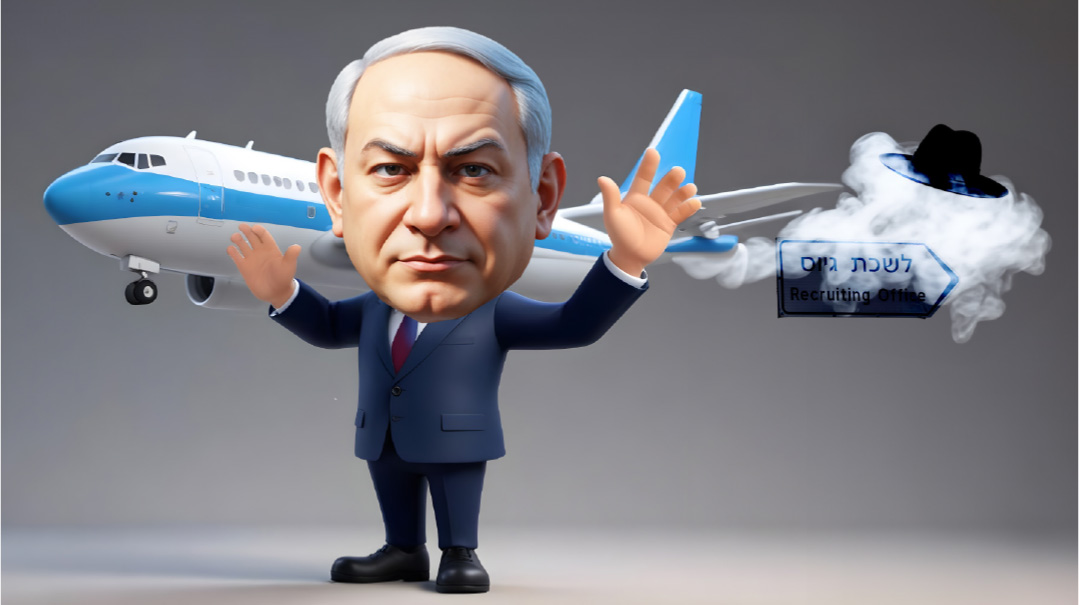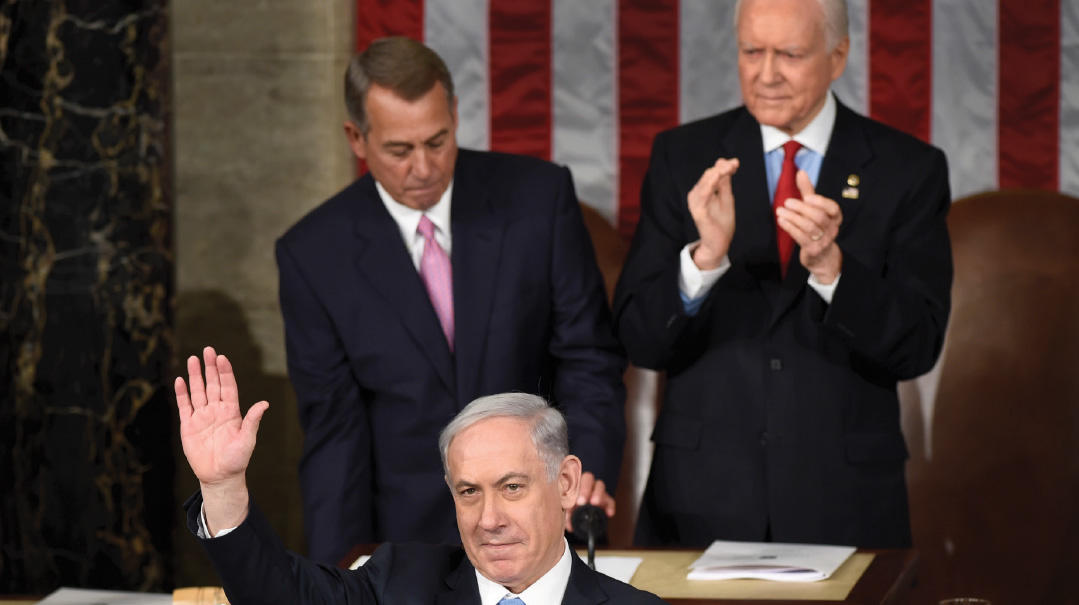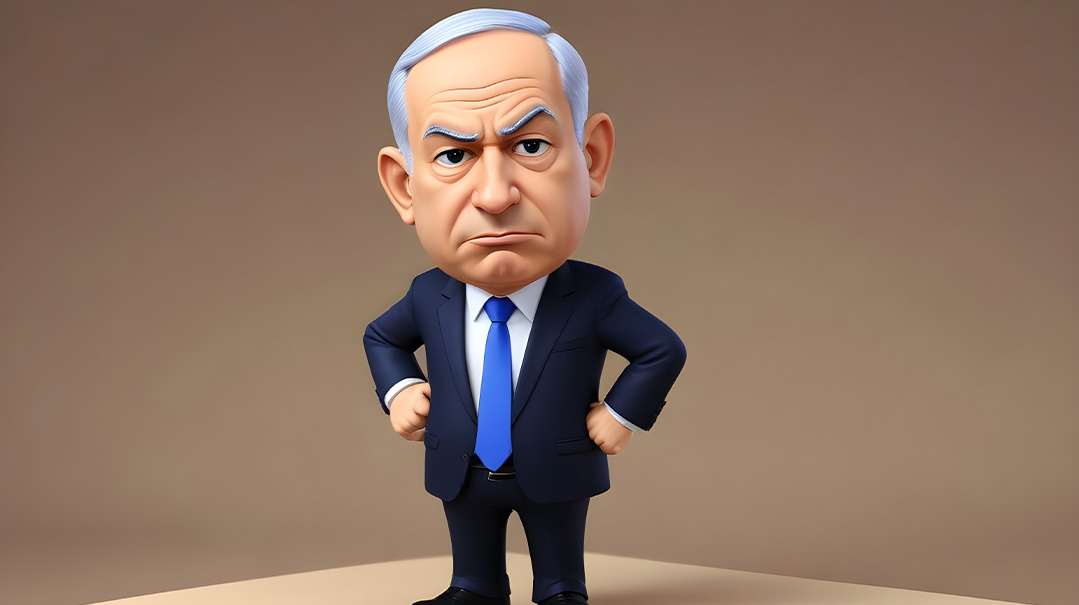Bibi’s Sweetest Victory

In this campaign, there were no rabbits pulled out of hats; the battle plan was carefully plotted from beginning to end
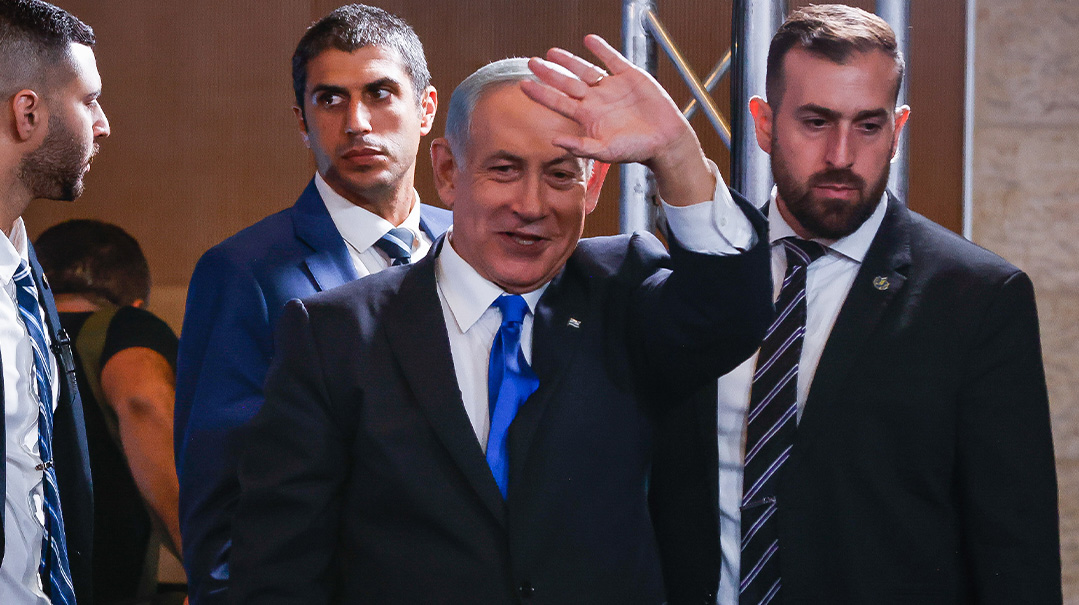
Photo: Flash90
1.
The Shabak personal security unit works like the American Secret Service. So on election night, the candidate who leads in the exit polls starts receiving protection early in the evening, as if he has already assumed office.
After a year of riding around in a slightly dinged Skoda Superb sedan, accompanied by a single security vehicle, last night opposition leader Binyamin Netanyahu resumed his customary carriage, traveling on the Tel Aviv–Jerusalem Highway in a long motorcade. He received the results at the Carlton Hotel on the Tel Aviv shore, then rode to deliver his victory speech at Jerusalem’s Binyanei Ha’umah in a 12-vehicle convoy, with all the protection afforded to a sitting prime minister.
But before he departed, Netanyahu had spent nearly five hours in a closed room with his advisors — from 10 p.m., when the exit polls were announced, until 2:40 a.m., when he left Tel Aviv to close the night, and the campaign, with a victory speech.
2.
During those moments, holding an espresso the way he likes it, in a glass cup, Netanyahu had time to do some thinking.
“Imagine how we would have looked if Meretz had switched places with UTJ,” Netanyahu said, as that left-wing party struggled to nose above the electoral threshold, along with the Arab Balad party.
As he received ongoing reports and prepared his victory speech, Bibi found a few minutes to settle accounts and remind the parties he nudged together that without him, the Israeli right could have plunged to a nadir like the one the left now finds itself in.
After four election nights when he led in the exit polls at bedtime and then woke up to worse results, Netanyahu learned some important lessons. He set out for the Carlton Hotel to give a victory speech to supporters only after the victory predicted by the exit polls was verified with the ballot boxes.
As he received those numbers in real time, he spoke to the leaders of all the parties in his bloc, several times, to reinforce the message. With the outcome of the Arab vote still a mystery, Netanyahu worked out with the party leaders that they would rush to declare victory, to strengthen the narrative of a right-wing sweep, while he waited for the final updates.
3.
During those nerve-racking hours until 2:30 a.m. when all he had were the exit polls, Netanyahu sat in his room high up in the Carlton Hotel overlooking the sea, getting real-time reports on the Arab scene. Hillel Kobrinsky, Yair Lapid’s chief strategist, had mounted a vigorous campaign in the Arab sector, channeling money and personnel into an operation to get all three Arab lists over the threshold to block a right-wing majority.
Netanyahu recounted how he had worked to unify the disparate elements of the Religious Zionist party and resolve the quarrels between the United Torah Judaism factions. He gave Zevi Fleischmann, tasked with managing strategy in the chareidi sector, a big hug.
In this campaign, there were no rabbits pulled out of hats; the battle plan was carefully plotted from beginning to end. It began with canvassing wealthy, influential chareidi donors in New York in a weeklong blitz to prevent the split in UTJ. Then came the takedown of Gantz’s campaign, after he presented himself as someone who could be chosen with the support of the chareidim.
Finally came the operation Netanyahu conducted in Jerusalem and Bnei Brak during the final days.
Shlomo Filber’s internal polling, conducted for Likud after the period when such polls could be legally published, revealed half a mandate’s worth of disenchanted chareidim who planned to stay home. Bibi’s response was to personally drop in on chareidi areas, and he delegated his schedule on those crucial days before the election to Fleischmann. He committed to a rally in Bnei Brak, and ate cholent — broadcast live — in a chareidi Leil Shishi establishment.
To ward off concerns of vote-poaching on the chareidi side, Fleischmann coordinated these events with Motty Paley, Rav Gershon Edelstein’s grandson, who clarified that Netanyahu had no intention of persuading wavering chareidim to vote Likud; he wanted to get them to the polling stations to vote UTJ. The results proved that those wavering chareidim heeded his call.
4.
Until this week, Binyamin Netanyahu’s victories over the past 25 years could be ranked as follows. Number one was his 1996 comeback victory over Shimon Peres, making up a two-digit deficit in polls in two months following the Rabin assassination. Number two was his 2015 victory, another case when he won against all the odds and early prognostications.
The joy that enveloped him from this week’s triumph was almost as sweet and intense as that of 1996. Even within his own party, Bibi had already been buried and eulogized. Just a few months ago, he seriously considered closing on a plea bargain that would have distanced him from politics permanently.
Now, as the trial continues, facing an adversarial media that has invested no small amount of effort and money to see him off, the man has achieved another unbelievable comeback. With siyata d’Shmaya, he has worked his way through this difficult period over the past year with a clear strategy, and prevailed.
After a cumulative tenure of 13 years as prime minister of Israel, Bibi now feels like he’s getting a new start. At 73 years young, about six years younger than the sitting American president, he feels like he’s at the pinnacle of his strength. For the first time, Israeli right-wing voters have given him the tools to establish a government without obstacles.
Oops! We could not locate your form.






